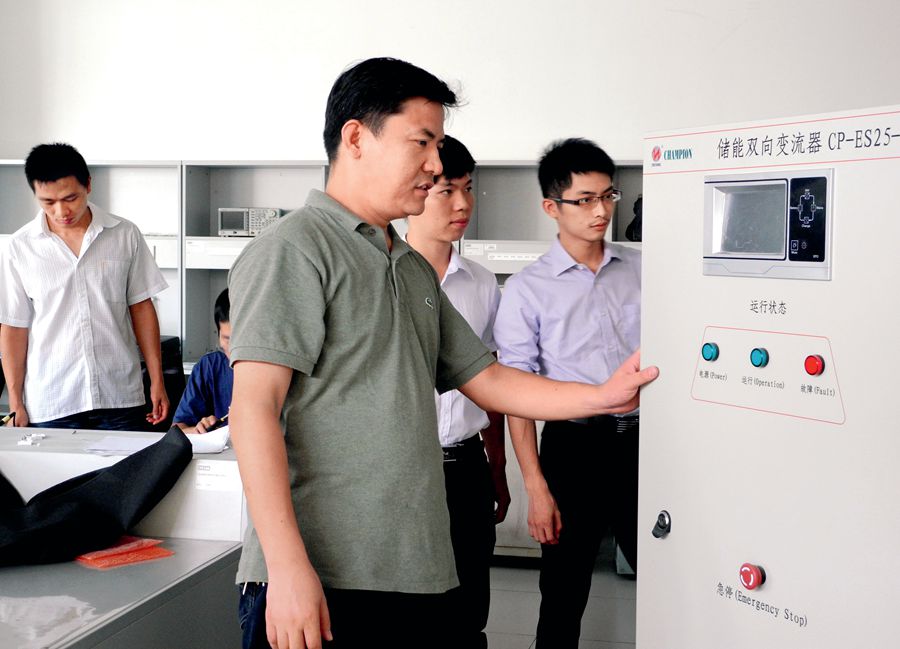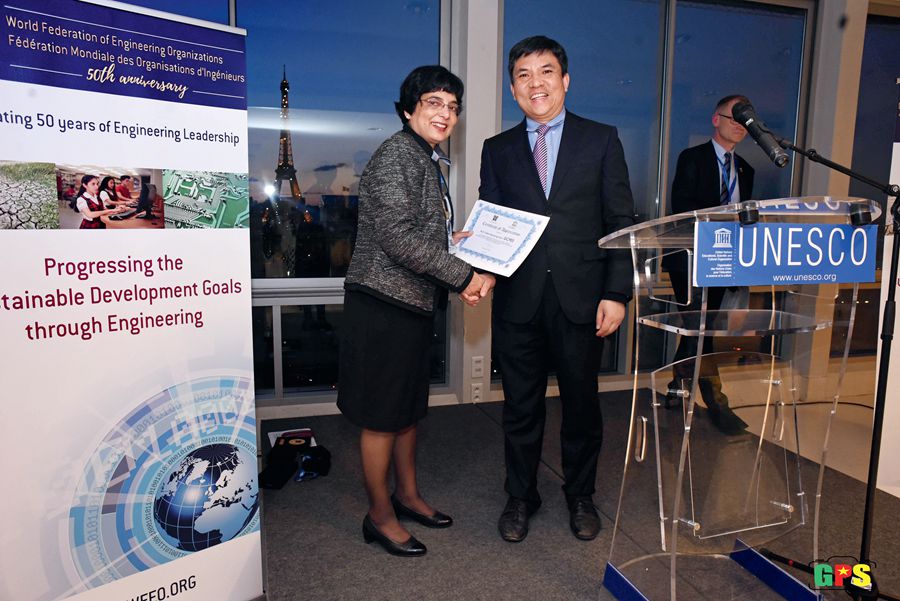CHEN Haoyong made the decision to devote himself to the development of electrical power science while he was majoring in electrical engineering at the Xi’an Jiaotong University in the early 1990s.
In 1994, his professor introduced him to Wang Xifan, a famous scholar in the field of power systems who had just returned from Japan and who was also an academician of the Chinese Academy of Sciences. Over the following 12 years, Chen studied and worked under the guidance and supervision of Wang.
At the end of 2006, Chen transferred to the South China University of Technology, where he is now serving as professor at the School of Electrical Power Engineering, Ph.D. supervisor, member of the Academic and Degree Committee, and director of the Institute of Electric Power Economy and Electric Power Market.
The Electrical Power Industry: Key Sector in Building a Stronger China
For more than 20 years, Chen Hao-yong has worked in electrical power science and research, focusing on fundamental research and teaching in cutting-edge fields, including electrical power system planning, operation and control, new energy grid-connectedness, smart grid technology, electrical power economy, electrical power market, and integrated energy systems, in addition to making notable achievements in many fields. He presided over several research projects of the National Natural Science Foundation of China and National High-Tech R&D Program. He was honored by the Excellent Youth Science Foundation, and awarded the first prize of Natural Science Outstanding Achievement Award of the Ministry of Education of China in 2008, and the first prize of Scientific and Technological Progress Award of Hainan Province.

Professor Chen Haoyong guides his students during an experiment.
The large-scale power systems that emerged in the 20th century are one of the most significant achievements in the history of engineering science. Today, humanity’s need for electrical energy is growing with the development of the economy. As the number of grids in different regions are increasing, and the infrastructure is becoming more complex, modeling, optimization, and control of electrical power systems have become hot topics of academic research.
The optimization of electrical power systems can ensure a safer and more stable operation of the system. Inspired by inter-disciplinary innovation, Chen creatively proposed the “co-evolutionary algorithm” for optimizing electrical power systems. The term “co-evolutionary” is originally a biological concept, and Chen introduced it into the field of engineering to solve the unit commitment problem in large-scale electrical power systems. This innovation provides a new way to optimize electrical power systems and a basic algorithm for solving problems in optimizing general complex engineering systems. In the academic community, it is generally believed that the co-evolutionary algorithm, as an extension of the traditional evolutionary algorithm, is able to solve more complex problems. At present, it has been applied in several fields, such as electrical power system planning, operation, and the decision-making in the electricity market.
A world first, Chen proposed the application of the differential game theory to cooperative control of electrical power system frequency. In China, he was the first to propose that we could study trading mechanisms in the electric power market based on experimental economics. Nowadays, many of his innovative theories and methods have been cited by scholars from home and abroad in different fields and applied in the electrical power industry.
In scientific research, theory is always closely linked to practice. Chen attaches much importance to combining production, theory, and research, so he has long maintained close cooperation with the industry. Over the years, Chen cooperated with enterprises like China Southern Power Grid Co., Ltd., Guangdong Grid Co., Ltd., and Hainan Power Grid Co., Ltd. He participated in a series of key projects, such as the “Research and Application of Real-Time Optimal Scheduling System Considering Uncertainty.” He also led his team in the smart grid project of Hainan Power Grid Co., Ltd. The results of his studies have ensured the safe and stable operation of the power grid in Hainan Province, and improved the quality of electrical power supply, which plays an important role in power security of the China (Hainan) Pilot Free Trade Zone and the Hainan Free Trade Port.

Chen Haoyong attends an event in Paris commemorating the 50th anniversary of the establishment of the World Federation of Engineering Organizations in March 2018. wfeo.org
Chen is quite pleased and proud to see a series of major breakthroughs in the electrical power technology and industry of China. However, He is also well aware that the electric power and energy industry in China still faces a series of problems. Since the National Energy Revolution Strategy was proposed, the development of renewable energy has become a priority. Although China’s current wind power and photovoltaic installed capacity ranks first in the world, there exists the issue of wasting of resources, including wind and solar power. This inturn hinders the development of the industry. In recent years, Chen and his team have carried out numerous studies and technological innovations in this regard.
Promoting the Development of the Energy Industry
On November 9, 2017, Global Chinese Power & Energy Society (GCPES) was officially registered and established in Hong Kong after strict scrutiny by the government of Hong Kong Special Administrative Region. GCPES aims to provide a communication platform for Chinese scientists all over the world. These Chinese scientists come from a similar cultural background, and GCPES is able to enhance the connection and communication between them by organizing academic conferences and publishing academic works. Thanks to GCPES, overseas Chinese professionals who care about the development of China can keep up with the latest news from GCPES. Also, relevant professionals in China’s mainland can seek overseas cooperation on this platform.
Chen Haoyong is the current president of GCPES. Since its establishment, GCPES has held related activities in succession. Not long ago, it collaborated with the Hong Kong Polytechnic University to hold a high-end forum on Smart Technology and Energy Strategy for Hong Kong’s Electricity Supply Industry Towards 2033. On August 24, 2018, GCPES and the Chinese Society for Electrical Engineering Journal of Power and Energy Systems (CSEE JPES) jointly organized an academic forum on promoting renewable energy – policy and market mechanism.
“The Chinese scientists have a large representation in the electrical power and energy industry, they have made outstanding contributions to the development of the industry. However, there was no international professional organization where Chinese scientists could find their place. Thus, we decided to establish GCPES,” Chen said.
According to Chen, in order to achieve ecological progress, China has to find a green and environmentally friendly way for the electrical power industry. A complex and ever-changing international environment has posed challenges to the people working in the electrical power industry. If China, a large country of the world, wants to achieve stable development in the long term, it has to take the initiative of innovation and development. As a scientist in the electrical power and energy industry, Chen is always mindful of the responsibility and mission on his shoulders and is relentlessly pursuing the pinnacle of scientific success.

